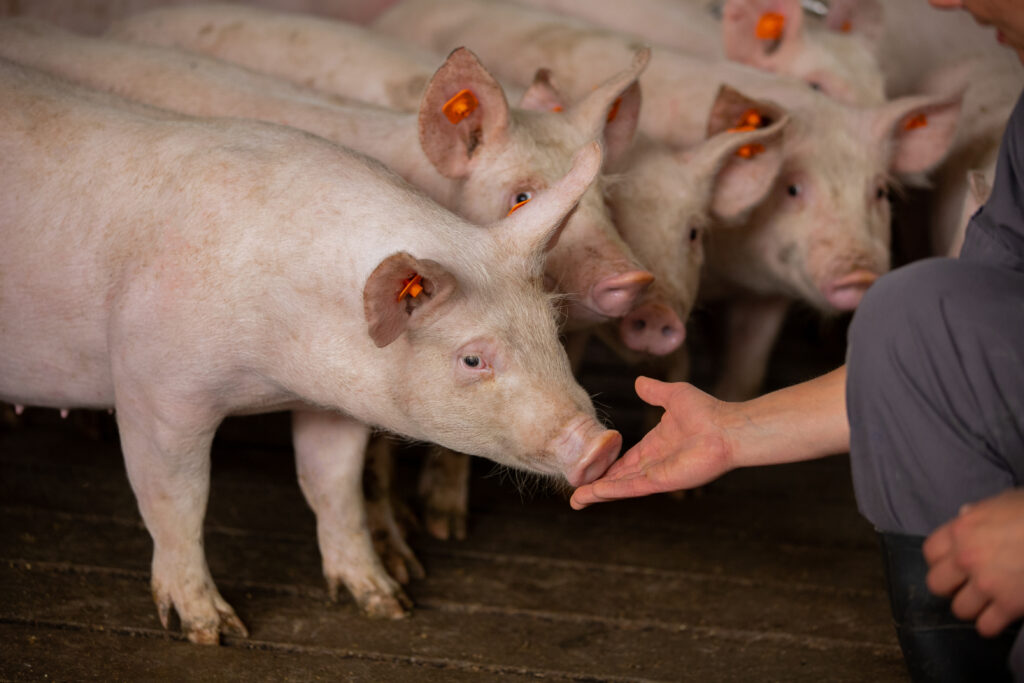By Jenelle Dunkelberger
It is vital for pigs to exhibit enhanced robustness to disease in order to thrive in current and future production systems. Robustness to disease is defined as a pig’s ability to maintain performance (or recover quickly) following exposure to disease. Results from our research trials show that there is a wide range in natural robustness to disease which is based on genetics. It is therefore possible to select pigs for enhanced natural robustness to disease through a breeding program.
To facilitate this, data from disease trials is used to allow for breeding for overall robustness to disease. Overall robustness refers to a superior response to whatever type of pathogen the animal might encounter, including viral and bacterial pathogens. In the same way we identify animals with the best genetics for feed conversion, back fat or litter size, we can identify animals with the best genetics for robustness to disease. Estimating breeding values for overall robustness to disease is a way of quantifying a pig’s genetic merit for this trait, which can be used to identify the best parents for the next generation. A repeated selection of animals with the best breeding values continuously improves the population as a whole.
Selecting pigs for enhanced overall robustness to disease is vital for ensuring that pigs can handle present and future pathogens. As we aim to improve the robustness of a population based on existing genetic variations, this can be done using the same breeding strategies currently used to enhance performance. For these reasons, breeding for enhanced overall robustness to disease is a natural and sustainable solution for disease control.

